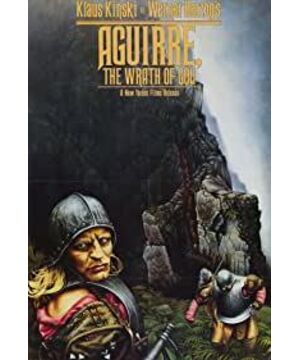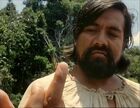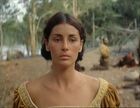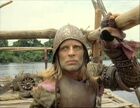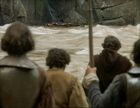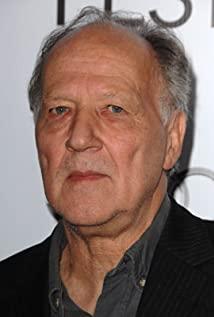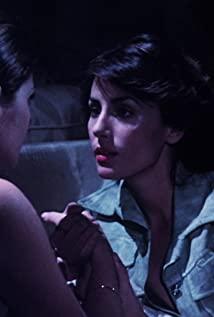After the trip to Herzog Film Academy, the director said that the clearer your purpose, the less fear you will be.
"Aguirre, God's Wrath" was also translated as "Scourge", and was named one of the top ten business cards in the world by Hong Kong in 1986. The director Herzog used the footage to record the difficult journey of a visionary upstream along the Amazon River on a raft, showing the strange and magnificent scenery of the South American jungle. There are three photographers in this film, one specializes in shooting the scenery, and the other two are second photographers. The scenes of the film are very well shot, and it can be said that it has reached the pinnacle. It is no wonder that the famous American director Francis Ford Coppola was inspired by "Aguirre, God's Wrath" in 1979 and spent a lot of money to shoot it. The philosophical anti-war psychology film "Apocalypse Now" is a philosophical anti-war psychology film that traverses the Mekong River with cameras and characters to explore how the Vietnam War degraded and alienated people.
Herzog has always believed that scenery occupies a very important proportion and position in the film. It has become an indispensable role in the film, with its unique functions and expressions. The use of color, the creation of atmosphere, the scheduling of scenes, voice-overs, dialogue, and music in this film are all mysterious, weird, and surreal, which are also symbols of barbaric power.
The film was full of mystery from the beginning, the smoky sky, the camera slowly swayed down from the air, vaguely saw the moving crowd on the narrow path in the jungle, and then it was overhead shot before the audience could see clearly. The young man was wrapped in red cloth, and suddenly a bamboo basket fell from the cliff and smashed to pieces... At this time the film title "Aguirre, God's Wrath" appeared. The whole film that followed was inseparable from the Amazon River. For a while, it was a turbulent river, and another was the sound of the impact of the river. Sometimes the river waves are surging, the water is rushing and the waves are big, and the raft is going upstream in the river, depicting an adventurer and careerist who dares to collide with the stormy torrent, and will never give up until he achieves his goal. It is portrayed in this man's struggle with nature. The madness of Aguirre. But sometimes the river is calm and calm, and the surroundings are terrifyingly silent, with only a single bird cry or the sound of crows flying around, and from time to time someone is shot to death by an invisible Indian with an arrow, making people shudder and creepy.
Herzog used the Amazon River to make his films an unstoppable river, sometimes with turbulent waves and sometimes calm as a mirror, allowing the audience to move in this big river, connecting the screen with the audience.
The end of the film is also memorable. In the endless river, under the glaring sun, there was only one raft floating, and only Aguirre remained on the raft. The camera revolves around a lone raft in the river, like another whirlpool. The audience can realize that Aguirre has already fallen into this vortex and can't extricate himself from it.
The main feature of "Aguirre, God's Wrath" is that the scenery of the entire film is very beautiful, and the mercury-like river gradually disappears in the vastness of nature. The photographer of the film, Thomas Mauch, was awarded 1973. The Best Photographer Award issued by the Federal Government of Germany.
In addition to photography, the film’s dialogue and voiceovers are also very distinctive, often playing a finishing touch. For example, after the team had traveled a difficult journey, Pissaroma gathered the troops for a meeting. At this time, the priest's voice-over: "By the last day of the year, we are exhausted", and then the leader began to speak: "We can't reach Eldorado...decided to make the following plan..." The tone and flavor of the speech are not like speech, it is like reading a will. When Ursua was injured, Aguirre succeeded in usurping power. At this time, it was the voice of the priest: "The crowd is yearning to be there, as unstoppable as the rapids in the water, and Aguirre has taken advantage of this. Successful..." Later, the casualties of the troops became more and more serious, and the priest voiced: "They had to use ink to treat the disease. They saw some phantoms because they were having a fever..." This implies that Aguirre's fanaticism has reached a high fever. To the point of hopelessness.
The director of this film, Herzog, is a bizarre and accomplished director in the new German film. While most of the films shot by young German directors after 1965 aimed at exploring history or reality, society or politics in one way or another, Herzog’s works had very different intentions. He did not It is easy to incorporate these intentions into a certain model, and would rather express them creatively. He once said: "My film was produced due to an extremely strong infatuation, and I know that I have seen things that people have not yet seen and have never known." So his film contains rich philosophies, which makes the audience endless aftertaste. .
Herzog said: "The film I made is different from other directors. It is very attractive. I express what I see in the film, and no one else has seen it or recognized it. The characters I created are surreal, literary, and grotesque.” People can learn this from "Aguirre, God's Wrath".
"Aguirre, God's Wrath" is based on the diary of a priest in 1560 when a European expedition went to South America to find Eldorado. This is a well-conceived film. The protagonist, Aguirre, is a Titan-style rebel. He tries to defeat nature in an unfamiliar world in an extremely harsh environment and find the legendary Eldorado. The film reflects that Aguirre’s crazy pursuits and romantic fantasy are similar to utopianism, and ended in failure after being ruthlessly set back in the face of reality. The film aims to show the collapse of a certain social order and the failure of fantasies about reality. Aguirre became the leader through assassination and seizure of power. One can see Hitler's shadow in modern German history from Aguirre.
View more about Aguirre, the Wrath of God reviews


